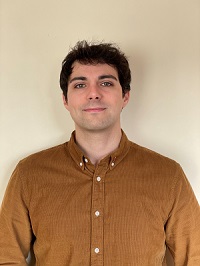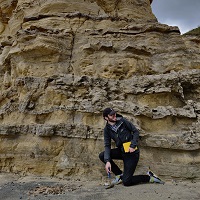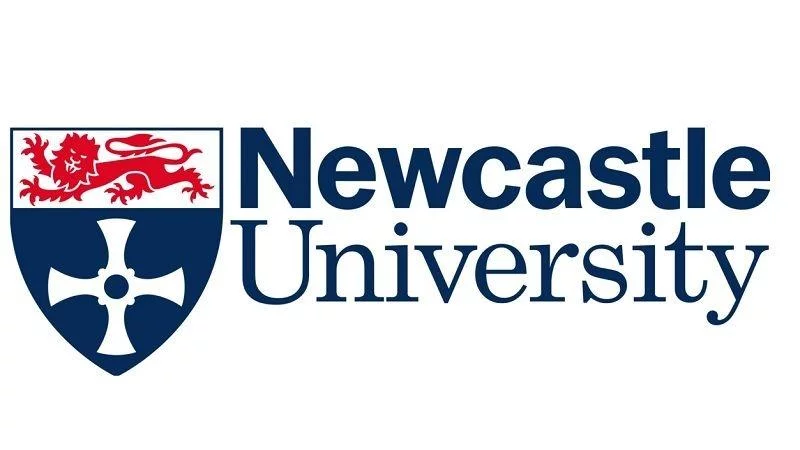March 2021
Gianluca Amicarelli
PhD Researcher, School of Engineering
 A PhD involves original research and usually requires 3 to 4 years of commitment in the UK. During this time you become an expert in your chosen topic, something that will likely affect your career in the future. Applying for, and pursuing a PhD, is not always straightforward and the last 12 months has likely been a difficult time for many considering applying for, starting and continuing PhDs. However, academic life has carried on and many post-graduate researchers have had to navigate starting a PhD during the Covid19 pandemic. But what is the experience of starting a PhD during the Covid19 pandemic? Below you will find the thoughts of two PhD researchers who both started in Autumn 2020. Gianluca is currently working on fractured granites whilst Hector is working on hydrogen storage within offshore salt structures.
A PhD involves original research and usually requires 3 to 4 years of commitment in the UK. During this time you become an expert in your chosen topic, something that will likely affect your career in the future. Applying for, and pursuing a PhD, is not always straightforward and the last 12 months has likely been a difficult time for many considering applying for, starting and continuing PhDs. However, academic life has carried on and many post-graduate researchers have had to navigate starting a PhD during the Covid19 pandemic. But what is the experience of starting a PhD during the Covid19 pandemic? Below you will find the thoughts of two PhD researchers who both started in Autumn 2020. Gianluca is currently working on fractured granites whilst Hector is working on hydrogen storage within offshore salt structures.
“2020 and 2021 have been some of the most challenging times I have faced so far and will probably be the hardest many generations will ever have to deal with. I have chosen to start a PhD during this very trying period knowing that there could be major changes in the every-day academic life; for instance, offices are inaccessible unless strictly necessary, lab access is limited and, to this day – 15th March, 2021 –, travel is limited to contain the spread of COVID-19, which means no fieldwork yet. The pandemic has inevitably changed the way we all live our lives, and one of the most challenging aspects is probably the lack of face to face interaction. I really miss talking to somebody who is not on the other side of a screen! All the simple things that used to be normal now seem unreal – for instance going for a drink with some friends after work or going out for dinner with your loved ones. Working only from home always seems to follow the same routine and can be very trying.
Two of the most important events of education occurred during lockdown: 1) I graduated from my MSc in Earth Sciences and 2) my civil and geotechnical engineering PhD application at Newcastle University was successful. However, those moments could have been even happier if I were able to celebrate with the people who are close to me (and also if I could have worn the gown of Newcastle University and picked up my certificate in person!)
Despite the challenges I believe that this pandemic may have had some positive long-term impacts on the way I work, and my work-life balance. The pandemic has forced a mass-migration towards home-working and I believe that employers, after seeing that home working is possible, may allow alternating between office and home working, which would be great for personal wellbeing.”
Hector Barnett
PhD Researcher in Geosciences

"Starting a PhD during a global pandemic has been somewhat of a strange experience for me. Next month will mark a year since I scurried back from the sprawling mass of London. I was excited to have a break from the place and return to my hometown of Hexham in rural Northumberland for what I thought, like many others, would be a 2-month break max. The expectation being that everything would return to normal after a few weeks, oh how wrong I was! What was an enjoyable holiday from London for the first few weeks has gradually turned into an ever more fatiguing charade.
Since the beginning of lockdown, I have graduated from my MSc at Imperial College London, applied to a PhD, been offered said PhD opportunity and have currently been researching my project for about 5 months. Oh and I also managed to get from silver rank to platinum rank in the online competitive game Rocket League (an almost equal accomplishment in my eyes).
Being able to reflect on these achievements by writing them down makes them feel much greater than they did at the time, accomplishments that I should be proud of. However, the fact that these were all done under the same roof within about 15 meters of each other, seems to take something away from them for me. Whether it’s the lack of face to face human interactions, or the fact my days have had little variation since last March, I’m not sure? I’m hoping when normality returns, or what can be considered normality, that these feats start to feel a bit more real and I can appreciate them for what they are. Despite the negatives of starting a PhD in such times, I love my project and area of research. Everyone I have talked (albeit online) at Newcastle has been lovely and couldn’t do enough to help me. I consider myself extremely lucky for the position I am currently in, and still not quite entirely sure how I ended up in this opportunity. Regardless I won’t let a global pandemic get in the way and ruin it.

